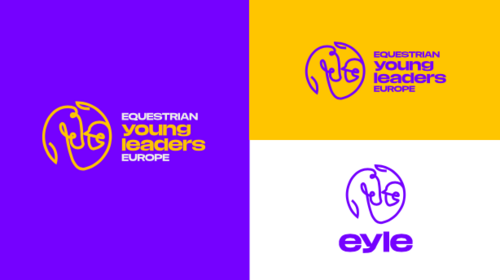EYLE Project gains momentum
01. Mar 2023 / Category: News
The Equestrian Young Leaders Europe (EYLE) project is progressing well following its official kick-off in October last year.
The EYLE is based on existing programmes in the Netherlands and Sweden in which children develop personal and leadership skills through work with horses. The programme works across 4 levels (categorised by age) and introduces a range of topics to develop each young person's knowledge, confidence, and self-development.
The visual identity for the project has been created and shows a horse and human, connected through a single line. The line moves and twists, representing the journey our young people will embark on in their leadership development, and honours the special bond between horse and human.
The programme will initially focus on a rollout in Hungary, Norway and Bulgaria and the National Federations (NF) of these countries have been hard at work setting up the foundations of the project. The initial work involves translating the materials into each local language and setting up the administration within each NF to enrol and manage future participants. Additionally, the NFs have started their outreach to riding schools to find suitable centres that will offer the EYLE programme and following this, coaches within each riding school will be selected and trained.
The Swedish and Dutch federations have provided excellent support and knowledge sharing to help the new NFs learn from their experience in this process. In April the Dutch NF project lead Fenna Westerduin will hold a coaching training day for each NF, to then allow the in-country training of other EYLE leaders.
Within the EEF, work on an online e-learning platform is underway to allow the young leaders to complete learning tasks, challenges and end-of-unit tests to earn their badges. The use of an online tool allows for more access and the potential for greater country rollout in the future and will form a key part of the project delivery.
The EYLE programme has been created with thanks to funding from the EU Erasmus+.



